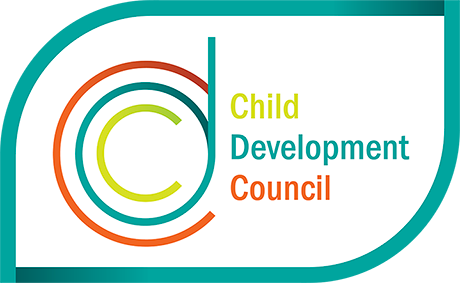CYP Matters
Respect and listening
Health research must be ethical
Marginalised communities, including trans young people, many of whom experience anxiety and depression as a result of stigma and discrimination, need culturally safe research. The ABC Four Corners program has raised important questions about ethical research. More >
Enjoying and achieving
Parents have just started their own school in Sydney – this is part of a long tradition in Australia
Ideally, the local public school is able to provide for diverse students and communities, but some parents and local communities start their own schools if they feel what’s on offer is not suiting their families’ needs. More >
Use of evidence-based practices in early childhood education and care: National snapshot 2021/2022
Evidence-based practices are educational approaches that are backed up by research evidence. This means there is broad consensus from rigorously conducted evaluations that they work. More >
Measuring Australia’s digital divide: the Australian digital inclusion index 2023
Now, more than ever, the ability to access, afford and effectively use digital services is not a luxury; it is a requirement for full participation in contemporary social, economic and civic life. More >
‘The way I was taught disabled me’: How to help young people with dyslexia
School should be about hanging out with friends, soccer in the playground and excitement about learning new things. However, for those with undiagnosed dyslexia, it is a place of stress and anxiety. More >
Participation
Queensland council to make Bribie Island park more accessible after seven-year-old’s appeal
Seven-year-old Zach appealed to a Queensland council after an $800,000 park makeover to improve accessibility made it impossible for him to play there. The council has committed to making changes, and has also developed a new policy for accessibility on all council projects named ‘Zach’s Principle’. More >
Prepared for adult life
Pathways, Engagement and Transitions
The Engagement and Transitions longitudinal study, which followed more than 1000 disadvantaged students in Year 12 in 2020, found that while the vast majority are engaged in work or study two years after finishing school, they are missing out on career progression opportunities which could have long-term consequences for their futures. More >
Health and wellbeing
Poverty is linked to poorer brain development – but reading can help counteract it
Studies have shown that early childhood poverty is a risk factor for lower educational attainment, and is also associated with differences in brain structure, poorer cognition, behavioural problems and mental health symptoms. This study shows reading for pleasure may counteract some of the negative effects of poverty on the brain. More >
Reimagining youth mental health: a discussion paper about how to tackle the youth mental health crisis
High levels of mental wellbeing during childhood, adolescence and young adulthood are a driver of learning, creativity, productivity, good relationships, greater civic participation and physical wellbeing. It underlies flourishing in later life and allows young people to reach their full potential, having a positive impact on society. More >
The Pandemic Hurt Teens. How Can We Help Them Recover?
Coming of age in the pandemic has been rough on a generation of teens. Researchers in the US have been studying how teens have fared and how they can be better supported. More >
40% of Childline contacts around body image and eating problems take place during the summer
In the last year UK counselling service, Childline, delivered over 4,000 counselling sessions to children and young people struggling with body image and eating problems; 40% of these took place during the summer months. More >
Measuring what matters: Australia’s first wellbeing framework
The Measuring What Matters Statement is the first iteration of Australia’s national wellbeing framework, which aims to build a healthy, secure, sustainable, cohesive and prosperous Australia for everyone. More >
Safe and nurtured
Parents with disability and their experiences of child protection systems
Framing parents with disability as potential risks to their children is one of the most explicit forms of discrimination parents with disability face. While policy, and in some cases legislation, prohibit statutory intervention on the grounds of a parent living with disability, the literature and fieldwork reveal the way assumptions about disability nevertheless pervade risk assessment and child protection practice. More >
Parents forced back to work by cost of living crunch struggle to find childcare in Naracoorte
Naracoorte Early Learning Centre can cater for 50 children from six weeks of age to pre-school age, but all its places are full. With a long waiting list, the centre can’t even provide spots for the babies of two qualified childcare staff currently on maternity leave when they want to return to work. More >
The UK’s Online Safety Bill could transform the internet. Here’s how:
The Online Safety Bill is aimed at protecting internet users, particularly children, from illegal and harmful content, including child sexual abuse, hate crimes, fraud, incitements of violence and terrorism, among other harms. More >
Spotlight on the Guardian’s Visits to Residential Care
Over 700 children and young people in South Australia are not living with families, but instead living in what are technically known as ‘Residential Care Facilities’. The Child and Young Person’s Visitor Program primary intent is to see how children and young people are faring and ensure that these residential houses are fit for purpose. More >
Why language matters: talking about ‘equal protection from physical assault’ rather than a ‘smacking ban’
If an adult hits another adult because they don’t approve of how they’re behaving, it’s described as physical assault. But when a parent takes the same action against their child, we’re more likely to describe it as ‘smacking’. By reframing the language used to talk about this issue, we can better reflect the negative impact that physical punishment has on children. More >

